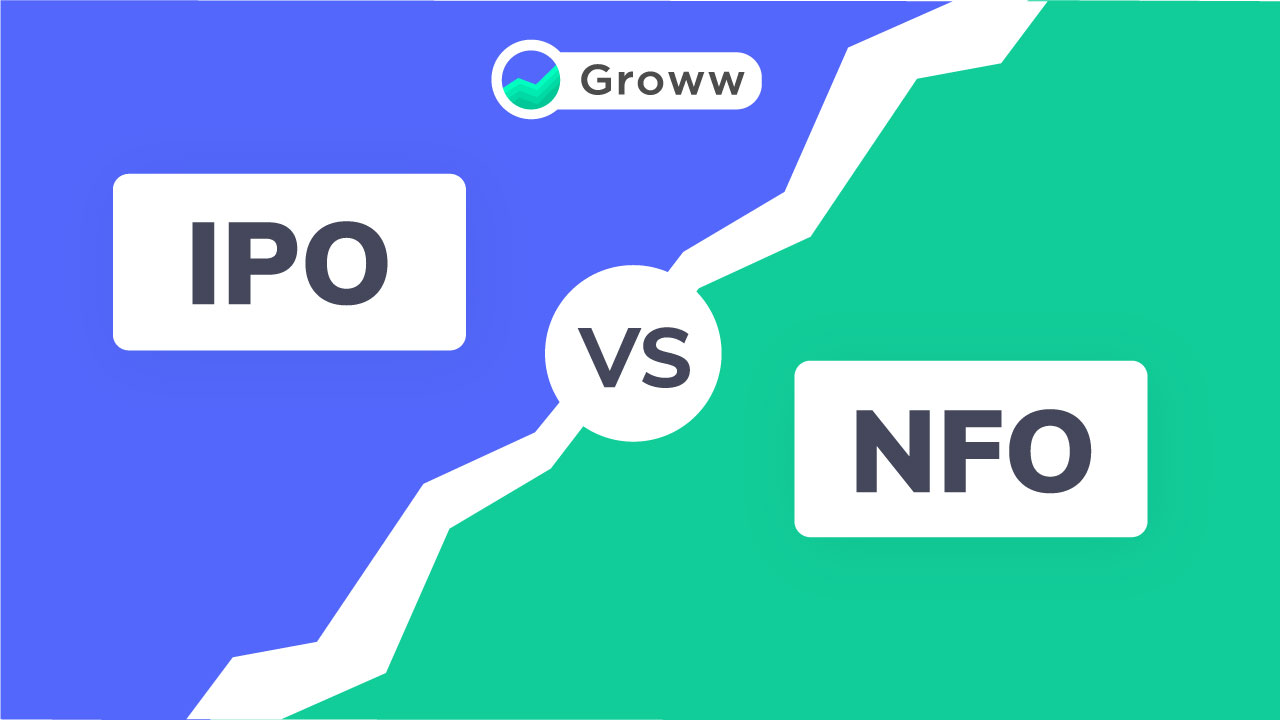What is the Difference Between NFO And IPO

Initial Public Offering (IPO) and New Fund Offer (NFO) are two words that are frequently used.
While IPOs are used by businesses seeking to list on stock markets, NFOs are often connected with Mutual Fund institutions.
Although they may appear similar and both attempts to raise money, IPOs, and NFOs have several key distinctions.
In this blog, we will evaluate two options used to raise funds from the market– NFO Vs IPO - and discover their fundamental differences.
Key Differences Between NFO & IPO
What is the difference between NFO and IPO? NFO and IPO are two distinct concepts, so let us examine the main variations between the two.
|
Characteristics |
New Fund Offer (NFO) |
Initial Public Offering (IFO) |
|
Meaning |
The fund house unveils a new mutual fund program through a New Fund Offer (NFO). |
A corporation first goes public by issuing shares and becoming listed on the stock exchange in an Initial Public Offering (IPO). |
|
Intent |
NFO is for a new Mutual Fund. |
IPO is for new Stock. |
|
Risk |
Investors with a low to moderate appetite for risk should choose NFO. |
IPOs come with a built-in risk of stock market exposure. |
|
Valuation |
For NFOs, valuations are meaningless because the funds are divided into units and invested in the markets. |
The Price-to-Earnings (P/E) and Price-to-Book (P/BV) ratios are two key indicators of a company's valuation, and it is also crucial in deciding the listing price and the allure of the offer. |
|
Listing |
NFOs begin operations after the obtained money has been used to purchase market shares. Considering administrative and marketing expenses, the initial NAV of a fund may be ₹ ten or less. |
IPOs are listed on the stock market above or below the initial price range, allowing investors to profit significantly should prices increase on the day of listing. |
|
Succeeding Listing |
Following NFO, the mutual fund scheme's NAV represents the current value of the portfolio's underlying holdings. However, the valuation does not reflect the anticipation of the portfolio's growth. |
Following the IPO, the shares traded on the stock exchange are based on how the market participants see the company's future and profitability. |
|
Issued By |
Asset Management Company |
Companies |
|
Performance |
When it comes to the prior performance of the program, the investors have nothing to compare NFO against. However, to understand the fund management philosophy and methodology, customers might examine the performance of other schemes the fund manager runs as well as other methods of the fund house. |
The firm that is going public already exists and is conducting business. Investors can then understand the company's core competencies and historical success. |
|
Fund Utilization |
The funds go towards the purchase of Bonds and Stock by AMCs. |
Companies raise money to advertise their enterprise, carry out company growth projects, etc. |
|
DEMAT Account Requirement |
No |
Yes |
Conclusion
Both the IPO and NFO are attempts to raise funds to support operations, which makes them similar.
If invested intelligently, both have the potential to provide significant returns. However, do your homework before investing in any of these opportunities. Only support once you know all the facts, are satisfied with yourself and know the hazards.
You can choose an IPO if you desire more significant returns and have a moderate to high taste for risk. But NFO would be a better option if you have a medium to low-risk tolerance. In any case, invest cautiously and gradually.
Happy Investing!